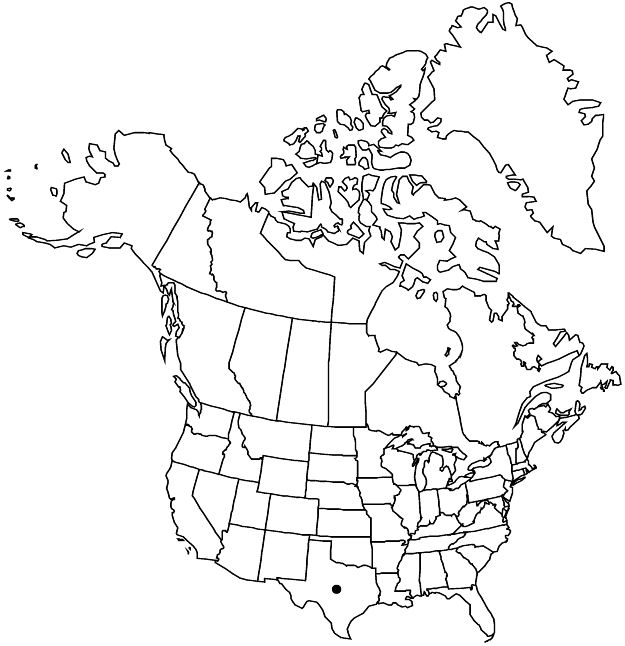Colubrina stricta
Smithsonian Contr. Knowl. 3(5): 33. 1852.
Shrubs, erect, 1–2 m. Stems straight or slightly zigzag, loosely sericeous to glabrate. Leaves deciduous; petiole 3–10 mm; blade ovate to ovate-oblong, 3–7.5 cm, herbaceous, base rounded to truncate, margins serrulate, teeth 40–70 per side, , villous-tufted, apex rounded to acute, abaxial surface persistently sparsely villous at least among veins, adaxial surface sparsely strigose, becoming glabrate; pinnately veined, secondary veins (3–)4–5 pairs, arcuate, basal pair slightly more prominent. Inflorescences thyrses, 6–15-flowered; peduncles 2–8 mm; fruiting pedicels 5–6 mm. Capsules 7–8 mm.
Phenology: Flowering Mar–Jun.
Habitat: Rocky open slopes.
Elevation: 200–1600 m.
Distribution

Tex., Mexico (Coahuila, Coahuila, Durango, Nuevo León).
Discussion
Colubrina stricta is known in the flora area only from historic collections (during 1850) at the type locality in Comal County and a few more recent collections from one site in Hueco Tanks State Park in El Paso County. It is more continuously distributed and abundant in Mexico (G. L. Nesom 2013). Validation of the epithet by M. C. Johnston (1969) was superfluous.
Selected References
None.